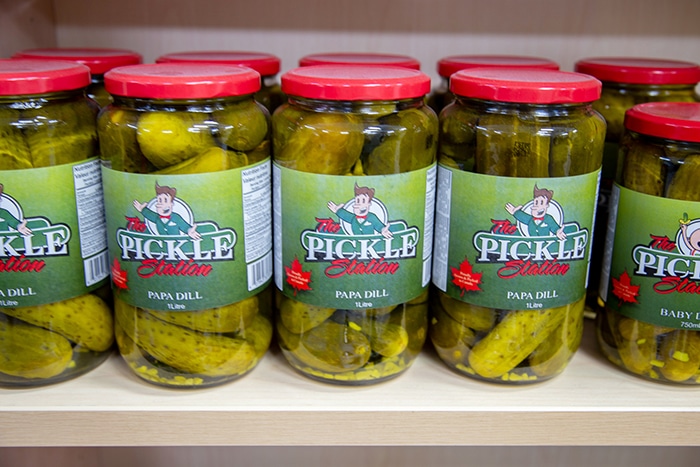
Anthony Wilson
Special to The Voice
Hey Chatham-Kent, did you know that Nov. 14 was National Pickle Day? It’s true, and it was time to celebrate our Chatham-Kent pickles.
National Pickle Day recognizes the tart, spicy, sweet, and of course the crisp baby dill pickle, which is certainly my favourite. Each year on Nov. 14, pickle lovers pop open jars of their preferred preserved pickle. It may be dill, Gherkin, Cornichon, Brined, Kosher Dill, Polish, Hungarian, Lime, Bread and Butter, Swedish and Danish, or Kool-Aid Pickle. Whichever is your choice, eat them all day long. Heck, eat them all year long!
One example of a local connection to National Pickle Day is TVF Farms and the Pickle Station, which has been growing for more than 50 years and handles 35 million pounds of cucumbers annually.
“Our farming season started off a little rough this year due to the weather with an extremely late start, but in the end it was a record year for growing cucumbers and the yields were beyond expectation,” said Krystle VanRoboys, co-owner of TVF Farms said. “We sell both locally and to processors all over Eastern and Midwest USA. We invite everyone to crack open a jar of pickles today and share in the delicious crunch.”
So, Pickle Day, you say. Where did this day come from? Well, this holiday has been celebrated for 70 years on various days. However, in 1949, the first recognition of Pickle Day began with encouragement from the Pickle Packers Association, and a chosen date of Nov. 14 as the celebration date.
Now we know a little about Pickle Day, but I wanted to know a little more about pickles too. I learned that the term pickle comes from the Dutch word pekel, meaning brine. In Canada, the word pickle typically refers to a pickled cucumber. However, just about any fruit or vegetable can be pickled. If you have not tried pickled onions, please do and thank me later.
Here are some pickle facts that I learned along the way:
• Food vendors sometimes serve pickles on a stick at fairs or carnivals. They are known as stick pickles and some of those pickled look as big as a baseball bat!
• A rising trend in Canada is deep-fried pickles. The pickle is wrapped in dough or dipped in breading and deep-fried. I have not tried this one yet but have friends who swear by it.
• The popularity of the pickle dates back thousands of years to 2030 BC. At that time, traders imported cucumbers from India to the Tigris Valley. Here the people first preserved and ate the cucumbers as pickles.
• Cleopatra attributed her good looks to her diet of pickles.
• Even Julius Caesar craved the benefits of pickles. He believed pickles lent physical and spiritual strength and gave them to his troops.
• More and more bodybuilders are trying the post-workout pickle juice as the new “thing.” The electrolyte and water content of pickle juice make it a good post-workout drink. The brine also has potassium, which helps support heart, nerve, and muscle function. Seems good enough for me.
Here is another fact for you. Did you know that Chatham-Kent has a number of pickle producers? We do, check them out.
The Pickle Station is based in Chatham, and has been distributing its specialty pickles to the local Ontario market. The Station employs many of the local students in Chatham-Kent and makes an effort to help the next generation understand where their food comes from.
Whyte’s Foods is a producer of pickles, peppers and cucumbers in its Wallaceburg plant. Whyte’s have been a mainstay in backyard BBQ’s since 1929.
Sunshine Farms is based out of Thamesville, and produce a variety of picked products such as pickled asparagus, beets, carrots, beans and garlic.
All in all, Chatham-Kent produces 25 per cent of all of the cucumbers produced in Ontario, another fact that tells you just how important our farmers in Chatham-Kent are.
So, whether you like them spicy, sour, garlicky, on a stick or on a burger, grab a local pickle and enjoy. Of course, make sure you thank a farmer by shopping locally.
- Anthony Wilson is an economic development officer with the Municipality of Chatham-Kent.






